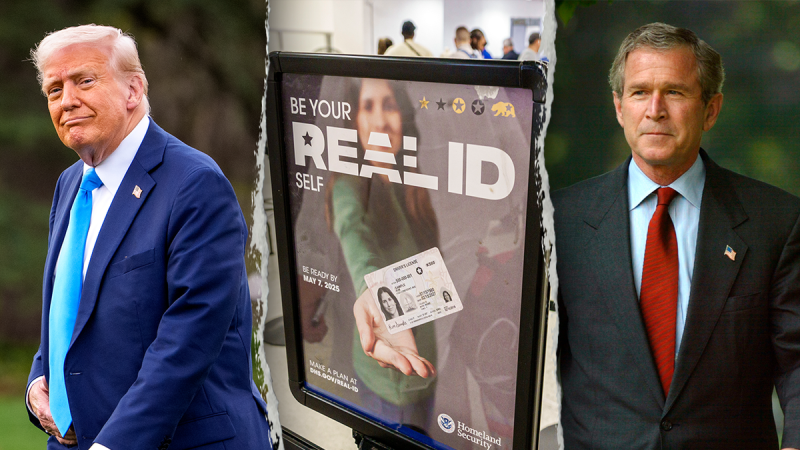Secretary of Homeland Security Kristi Noem’s announcement that REAL IDs will be required to fly starting May 7 has forced Americans to finally get compliant – 20 years after Congress passed the law.
On May 11, 2005, President George W. Bush signed the REAL ID Act into law to enhance national security in the aftermath of the Sept. 11, 2001, terrorist attacks. Passed by the U.S. Congress, the act set federal standards for issuing identification cards, like driver’s licenses.
Starting next month, REAL ID will be required to access federal facilities, enter nuclear power plants and board commercial aircraft. REAL ID’s rollout has faced nearly two decades of political pushback, setbacks and delays.
In the two years after it was passed, the National Governors Association (NGA), the National Conference of State Legislatures (NCSL) and the American Association of Motor Vehicle Administrators (AAMVA) called for delaying its implementation, citing logistical concerns.
Since its passing, states and advocacy groups have rejected its implementation. The American Civil Liberties Union (ACLU) – a longtime opponent of REAL ID implementation – called it ‘discriminatory, expensive, burdensome, invasive, and ultimately counterproductive’ in 2007 as disapproval grew nationwide. By 2009, at least 25 states had enacted legislation opposing the REAL ID Act.
States rejected REAL ID for a range of reasons, including costs, states’ rights and privacy concerns. Three years after the law was passed, REAL ID’s first deadline was set for May 11, 2008. But in the face of opposition, DHS extended the deadline to May 11, 2011, under President Barack Obama’s administration.
DHS later implemented a four-phase plan that extended beyond the 2011 deadline. By 2016, 23 states were fully compliant with the REAL ID Act, 27 states and territories were granted extensions, and six were noncompliant without extensions, according to a DHS letter.
By Jan. 22, 2018, travelers would no longer be allowed to use a state-issued ID for domestic travel, and by Oct. 1, 2020, REAL ID ‘or another acceptable form of identification’ would be required for domestic air travel.
Due to the COVID-19 pandemic, President Donald Trump extended the REAL ID deadline to Oct. 1, 2021. That deadline was later extended to May 3, 2023, by President Joe Biden’s administration ‘due to circumstances resulting from the ongoing COVID-19 pandemic.’
The Biden administration finally extended the deadline to May 7, 2025, to give states ‘additional time to ensure their residents have driver’s licenses and identification cards that meet the security standards established by the REAL ID Act.’
Noem announced the May 7, 2025, deadline would hold as the Trump administration seeks to prevent illegal immigrants from traveling within the United States.
‘Starting May 7, you will need a REAL ID to fly. REAL IDs make identification harder to forge, thwarting criminals and terrorists. If you plan to fly, make sure you get a REAL ID so you won’t be denied from your flight or face travel delays!’ Noem said.







































